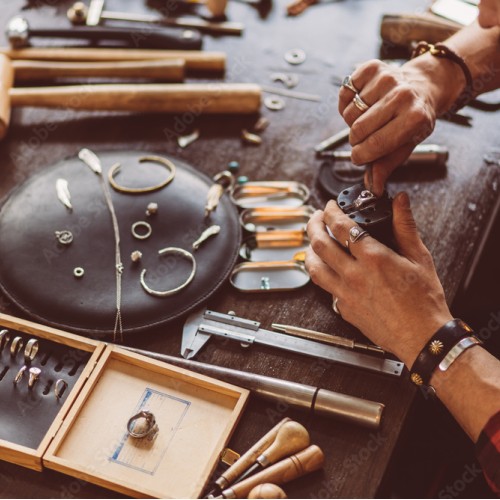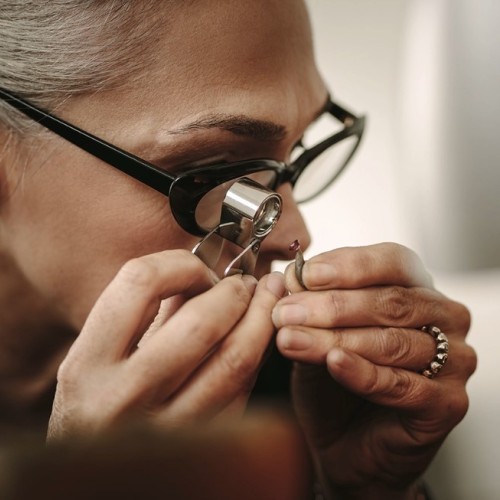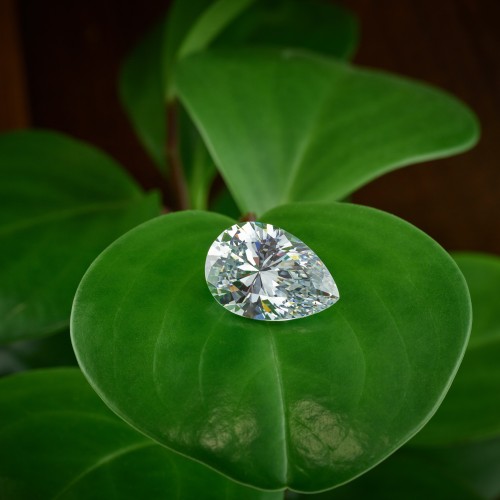Jewellery Care
To get the most out of your jewellery it’s important to care for it properly. Basic maintenance can go a long way towards preserving your jewellery and keeping it in the best possible condition. Regular cleaning also helps jewellery stay its most beautiful. The build up of everyday dirt and natural skin oils can make your jewellery look dull and lifeless over time, but is easily prevented.
Cleaning
How Often Should I Clean My Jewellery?
We suggest cleaning your jewellery at home on a weekly basis, especially pieces that you wear regularly.
For deeper cleaning, we recommend bringing your jewellery in annually for a complimentary professional service. We are happy to check it for wear and tear at the same time.
How Do I Clean My Jewellery At Home?
We recommend soaking your jewellery in lukewarm water with a small amount of dishwashing liquid and gently brushing it with a soft-bristled toothbrush. This is a safe method for cleaning gold, diamond, and other gemstone jewellery.
Pay special attention to areas such as the underside of gem settings, as these spots tend to accumulate the most dirt. If you happen to notice any buildup, consider soaking your ring for 30-40 minutes before cleaning it.
Are Ultrasonics Safe To Use?
Not all gemstones can be safely cleaned using an ultrasonic cleaner. Soft or organic stones like emeralds, pearls, opals, topaz, and tanzanite are not suitable for cleaning in an ultrasonic cleaner. Ultrasonic cleaners also use vibrations which can potentially loosen stones from their mountings or cause damage if not used with caution.
For this reason, we strongly recommend leaving this type of cleaning to jewellery professionals who have the knowledge and experience to use ultrasonic cleaners safely.
To keep your diamond, sapphire, and spinel jewellery in top condition, we recommend bringing your pieces in for an ultrasonic clean with us annually.
Wear & Care
Wear & Tear- How To Reduce it
Diamonds are famous for being tough and durable, but they are not indestructible and can still chip if struck at the right angle or with enough force. Precious metals like gold and silver can be dented or bent out of shape with a hard knock or under excessive pressure. Because of this we strongly recommend that you remove your jewellery when engaging in activities that could potentially damage it such as playing sports or working out, completing household cleaning tasks, or carrying heavy items.
Protecting Your Jewellery From Chemicals
It’s important to be mindful of the chemical products your jewellery is exposed to. Most household cleaners and hand sanitisers contain harsh chemicals or abrasive solutions that can damage precious metals. Perfume and hairspray can also be erosive and dull the shine of jewellery over time, and are especially damaging to pearls. Exposure to chemicals will also make sterling silver tarnish faster.
In order to protect your jewellery we strongly recommend removing it before performing household cleaning tasks, even if you are wearing some form of protection such as rubber gloves. Put jewellery on as a final touch when you’re finished applying chemical products like hairspray and perfume. And finally, make sure you clean your jewellery regularly so that any chemicals it is exposed to don’t get a chance to build up.
Excessive Weight Causes Damage
Putting too much weight or pressure on your ring can cause serious damage. Activities such as lifting heavy objects can cause the precious metal to bend out of shape. This can lead to rings that are no longer round, or gemstones becoming loose and even falling out. Please remove your jewellery before doing anything that could place it under too much pressure.
How Should I Store My Jewellery
Jewellery needs to be stored safely to protect it from environmental dirt and damage. We recommend that general jewellery items are stored in a jewellery box lined with soft fabric, as hard surfaces can cause denting or scratching. Investing in a jewellery box with a ring tray will help prevent rings rubbing up against each other. Diamonds are the hardest substance on Earth, so they are more than capable of damaging other jewellery items if stored incorrectly. Never store pearls or opals in an airtight container, such as a Ziploc bag. Pearls and opals are organic and contain trace amounts of water. Storing them somewhere airtight will cause them to become brittle and lose their lustre.
Caring For Gemstones
Some gemstones are more delicate than others. Emeralds, opals, pearls, topaz, and tanzanite are all examples of gemstones that need a little extra care, and as a result we don’t recommend them for everyday wear. They should be stored away from direct sunlight in a soft, fabric lined box.
For everyday wear, diamonds, sapphires, and spinels are ideal due to their durability, but it's still important to handle them with care.
Care For Sterling Silver
Sterling silver is prone to tarnishing due to its natural reactive properties, so it needs to be stored in a soft, dry place where it will not rub up against other jewellery pieces. Sterling silver jewellery should not be exposed to creams, lotions, or perfumes which can cause it to tarnish faster. After each wear, wipe your sterling silver jewellery clean and put it away. If it does start to tarnish we recommend polishing it with a high quality silver cloth.
Ring Sizing
Personal Jewellery Partners are happy to provide you with a complimentary plastic ring sizer, just contact us. Alternatively, you can find the ring diameter by measuring across the inner width of the ring. In order to measure your ring diameter you will need 1) a ring that fits you and 2) a ruler. To measure the size of the ring, place it on a ruler and measure the widest distance between the inner edges of the ring. Then refer to the ring sizing chart to find the size that matches your measurement.
j
-606x87.png)


